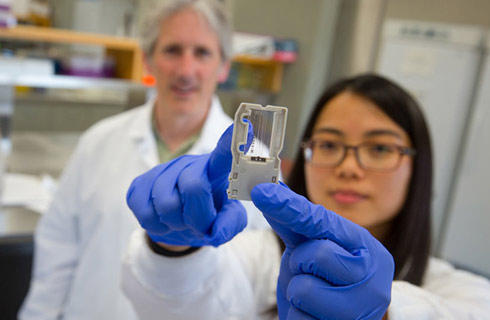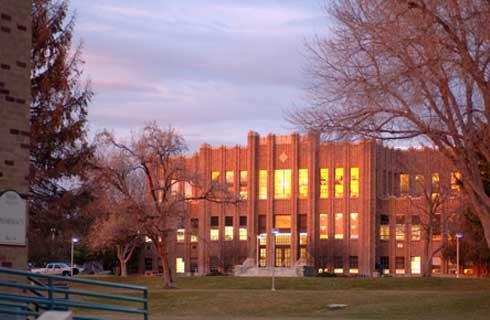Doctor of Philosophy in Astrophysical Sciences - Cosmology

学历文凭
Ph.D.

专业院系
天体物理学

开学时间

课程时长

课程学费

国际学生入学条件
All official Transcripts. A bachelor’s degree or its foreign equivalent from an accredited college or university. Official transcripts of your grades.
Three letters of recommendation. Applicants are required to upload a transcript (may be unofficial at this time) including the key from all attended colleges or universities.
The transcript must show the name of the student, name of the issuing institution, name of courses taken, and the grades received in those courses.
The Graduate School does not have a minimum TOEFL or IELTS score requirement. If you are offered admission and accept our offer and have scored below a 27 on the Speaking sub-section of the TOEFL iBT or below an 8.0 on the Speaking sub-section of the IELTS you will be required to take an English placement test at the start of the fall term. Students who do not pass the test will be required to enroll in English Language Program classes.
GRE :
General Test optional/not required; Physics Subject Test optional/not required
IDP—雅思考试联合主办方

雅思考试总分
6.0
了解更多
- 雅思总分:6
- 托福网考总分:60
- 托福笔试总分:160
- 其他语言考试:NA
CRICOS代码:
申请截止日期:请 与IDP联系 以获取详细信息。
课程简介
The Department of Astrophysical Sciences offers advanced training in astrophysics. The faculty and staff in the department conduct world-leading research in theoretical and computational astrophysics, observational astronomy, astronomical surveys, and instrumentation (both hardware and software). The fascinating discoveries of modern astronomy challenge the human understanding of the broadest possible range of physical phenomena. The graduate program in Astrophysical Sciences prepares students for scientific careers in astrophysics through a combination of classes and early and active participation in research projects, culminating in original thesis research.<br>Princeton has a long tradition in observational, numerical, and theoretical cosmology with research efforts in Physics, Astronomy and at the IAS. Princeton faculty helped develop today's standard cosmological model (Bahcall, Dunkley, Gott, J. Ostriker, Spergel, Steinhardt, Zaldarriaga) and helped introduce important concepts such as dark matter, dark energy, and inflation. Paul Steinhardt (physics) was not only a key figure in the development of the inflationary model, but has been recently developing its most promising alternative: the ekpyrotic universe. Princeton faculty are working on a diverse set of problems in theoretical cosmology: time travel (Gott), the topology of large-scale structure (Gott), the shape of the universe (Spergel), formation and evolution of galaxies and large-scale structure (Bahcall, J. Ostriker), clusters of galaxies and their use as cosmological tools (Bahcall, J. Ostriker), the distribution of dark matter (Bahcall, J. Ostriker), non-Gaussianities from the early universe (Spergel, Zaldarriaga), galaxy formation, and the physics of the IGM (Bahcall, J. Ostriker).
相关申请

预科

奖学金

实习机会

在校学习

跨境学习

校园授课-线上开始

在线/远程学习
学校排名
世界排名
7
数据源:泰晤士高等教育世界大学排名
关于普林斯顿大学

虽然在排名上常年被哈佛和耶鲁压制,但这完全不影响普林斯顿饱受捐赠者的青睐。普林斯顿大学拥有全世界最高的捐款额,其在2012年接受的来自各方的捐赠总数几乎达到了170亿美元!有的挣就有的花,普林斯顿的奖学金政策被公认为全美最慷慨的,每年大一新生中有大约60%可以拿到平均40000美金的奖学金!对于普林斯顿的招生官来说,你信仰什么都无所谓,甚至中国学生和美国学生在他们眼里毫无区别。普林斯顿评价优秀学生的指标有4项:头脑质量,包括智商、学习能力、创造力等;品格质量,包括责任感、价值观、判断力等;为学校作出贡献的能力;未来在本专业和社区起领导作用的潜力。
本校相关课程
Master / Doctorate in Social Policy

学历文凭
Combined Graduate / Doctoral Degree
下一个开始日期
课程费用总额
Doctor of Philosophy in Public Affairs

学历文凭
Ph.D.
下一个开始日期
课程费用总额
Doctor of Philosophy in Spanish and Portuguese

学历文凭
Ph.D.
下一个开始日期
课程费用总额
Doctor of Philosophy in Sociology

学历文凭
Ph.D.
下一个开始日期
课程费用总额
Doctor of Philosophy in Russian Literature and Culture

学历文凭
Ph.D.
下一个开始日期
课程费用总额
Doctor of Philosophy in Religion

学历文凭
Ph.D.
下一个开始日期
课程费用总额
其他相关课程
天体物理学理学学士

卡尔加里大学
泰晤士高等教育世界大学排名:

学历文凭
Bachelor Degree
下一个开始日期
课程费用总额
天体物理学理学学士

圣玛丽大学
泰晤士高等教育世界大学排名:

学历文凭
Bachelor Degree
下一个开始日期
课程费用总额
天文学与天体物理学博士学位

多伦多大学
泰晤士高等教育世界大学排名:

学历文凭
Ph.D.
下一个开始日期
课程费用总额
荣誉物理学和天体物理学学士学位-士嘉堡

多伦多大学
泰晤士高等教育世界大学排名:

学历文凭
Bachelor Degree with Honours
下一个开始日期
课程费用总额
天体物理学与天文学哲学博士

女王大学
泰晤士高等教育世界大学排名:

学历文凭
Ph.D.
下一个开始日期
课程费用总额
天体物理学和天文学理学硕士

女王大学
泰晤士高等教育世界大学排名:

学历文凭
Masters Degree
下一个开始日期
课程费用总额




